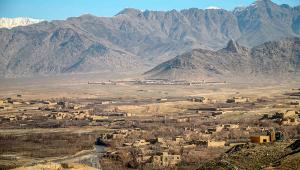web_indiahighereducation_shutterstock_261976376.jpg

A student in the library
The funds will benefit a number of universities and colleges in Madhya Pradesh, which will be supported in using grants effectively to improve quality, providing equitable access and improving outcomes for students, particularly disadvantaged groups.
Toby Linden, lead education specialist and the World Bank’s task team leader, and Sangeeta Goyal, also a task team leader, said the project will enable HE institutions to offer better education to students and help them graduate on time and contribute to society.
“The reform path in HE is long and complex, but Madhya Pradesh is a state ahead of many others in setting out,” they said.
Across India, HE is expanding rapidly. Enrolment has doubled, topping 17 million students in 2011, and almost 10% of those, or 1.6 million, were enrolled in Madhya Pradesh.
However only around half of an incoming cohort of students graduates at the end of the three years, and an even smaller number find employment.
The rate of students graduating from one year to the next is also low, especially among disadvantaged students, and there are high dropout rates in the first and second years in particular.
“By focusing on good quality education for higher learning, extending scholarships for disadvantaged students, and improving resources available, we hope the project will produce a labour force that has the required skills and knowledge to boost the state’s economy and lift many out of poverty,” explained Onno Ruhl, World Bank country director in India.
The project will also work to upgrade qualifications and skills of faculty members, extend technical assistance to help institutions gain accreditation with the country’s National Assessment and Accreditation Council and strengthen governance and accountability.
The World Bank said around 3.6 million students, over 10,000 academic staff, 1,400 administrators and officers in nearly 200 government colleges and universities are expected to benefit directly from the project.
The credit, which comes from the International Development Association, the concessionary lending arm of the World Bank, has a maturity of 25 years, including a five-year grace period.













